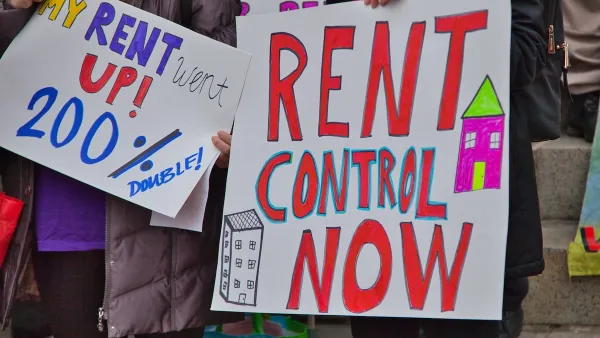The Times delves deep into the financial incentives that cities, counties, and states dole out to corporations to lure jobs and economic development to their corner of the country. Just what does the $80 billion spent each year actually buy?
Once focused on automakers, and now sought by everyone from Caterpillar to Facebook, governments in every corner of America "who are desperate to create jobs, outmatched by multinational corporations and short on tools to fact-check what companies tell them" use incentives to attract and keep businesses large and small without a clear indication that those investments ever pay off. "For local governments, incentives have become the cost of doing business with almost every business," says Louise Story. "The Times found that the awards go to companies big and small, those gushing in profits and those sinking in losses, American companies and foreign companies, and every industry imaginable."
Exploiting local fears that companies would move jobs overseas, or over county lines, corporations have created "a high-stakes bazaar where they pit local officials against one another to get the most lucrative packages. States compete with other states, cities compete with surrounding suburbs, and even small towns have entered the race with the goal of defeating their neighbors."
At the same time that local governments are cutting back on services, they're creating new tax credits and exemptions. And while incentives take many forms - cash grants and loans; sales tax breaks; income tax credits and exemptions; free services; and property tax abatements - it's unclear how effective certain ones are over others, or over nothing, because government agencies and officials "rarely track how many jobs are created," notes Story. "Even where officials do track incentives, they acknowledge that it is impossible to know whether the jobs would have been created without the aid."
This article is the first in the Times' United States of Subsidies series. The series is accompanied by an extensive interactive database of incentives cataloged by state and company.
FULL STORY: As Companies Seek Tax Deals, Governments Pay High Price

Analysis: Cybertruck Fatality Rate Far Exceeds That of Ford Pinto
The Tesla Cybertruck was recalled seven times last year.

National Parks Layoffs Will Cause Communities to Lose Billions
Thousands of essential park workers were laid off this week, just before the busy spring break season.

Retro-silient?: America’s First “Eco-burb,” The Woodlands Turns 50
A master-planned community north of Houston offers lessons on green infrastructure and resilient design, but falls short of its founder’s lofty affordability and walkability goals.

Test News Post 1
This is a summary

Analysis: Cybertruck Fatality Rate Far Exceeds That of Ford Pinto
The Tesla Cybertruck was recalled seven times last year.

Test News Headline 46
Test for the image on the front page.
Urban Design for Planners 1: Software Tools
This six-course series explores essential urban design concepts using open source software and equips planners with the tools they need to participate fully in the urban design process.
Planning for Universal Design
Learn the tools for implementing Universal Design in planning regulations.
EMC Planning Group, Inc.
Planetizen
Planetizen
Mpact (formerly Rail~Volution)
Great Falls Development Authority, Inc.
HUDs Office of Policy Development and Research
NYU Wagner Graduate School of Public Service



























